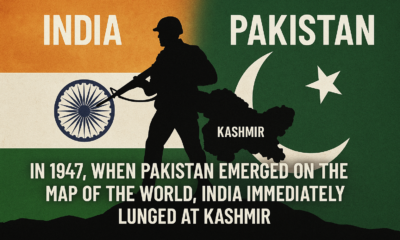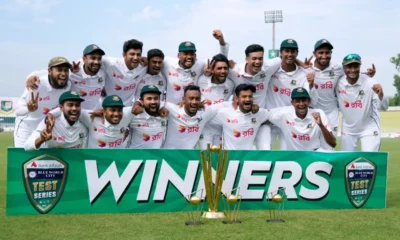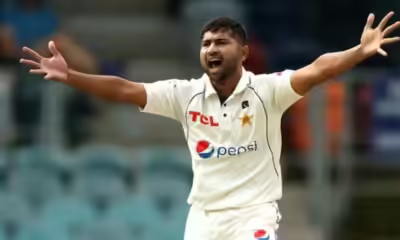International
Aftermath of Pahalgam Incident: NSC Convenes as Government Mulls Over India’s Hasty Actions

Pakistan’s Top Security Body Convenes as Tensions Soar After Kashmir Attack
An emergency meeting of Pakistan’s National Security Committee (NSC), chaired by Prime Minister Shehbaz Sharif, is currently underway in Islamabad. The country’s top civil and military leadership are assessing the fast-evolving situation following a deadly attack in India-held Kashmir that left over two dozen dead — and triggered a wave of aggressive actions by New Delhi.
According to state broadcaster Radio Pakistan, the meeting is focusing on both internal and external challenges, especially in light of what Pakistan is calling the “false flag operation” in Pahalgam.
Background: The Pahalgam Attack
The deadly assault took place in the scenic town of Pahalgam, a well-known tourist destination in India-occupied Kashmir. Gunmen reportedly opened fire on a crowd, killing 26 people — mostly Indian nationals and one from Nepal — and injuring several others. Indian media cited a previously unknown group, “The Resistance Front,” as claiming responsibility.
India, without offering any verifiable evidence, swiftly blamed Pakistan for allegedly supporting the attackers. Islamabad has strongly rejected the accusations and expressed condolences for the victims.
India Responds: Water Treaty Suspended, Diplomatic Ties Downgraded
Following the incident, the Indian government announced a series of unprecedented and aggressive measures, including:
- Suspension of the Indus Waters Treaty (IWT): The historic water-sharing agreement brokered by the World Bank in 1960 has now been unilaterally put on hold by India — a move experts are calling a watershed moment in bilateral ties.
- Reduction in Diplomatic Staff: Both countries are scaling down their high commission staff, and Indian defence advisers in Islamabad have been recalled.
- Border Closure: The main transit point at Attari has been sealed, and Pakistani citizens in India under the Saarc Visa Exemption Scheme have been ordered to leave within 48 hours.
- Ban on Pakistani Govt’s Social Media Presence: India has blocked the official X (formerly Twitter) account of the Government of Pakistan within its borders.
Pakistan’s Response: NSC Meeting and Strong Rebukes
In reaction, Prime Minister Shehbaz Sharif called the NSC meeting to chart out Pakistan’s response. Deputy PM Ishaq Dar, Defence Minister Khawaja Asif, and other top officials are in attendance. The meeting is expected to result in significant decisions.
Speaking on a late-night television program, Dar criticized India’s approach as “immature and hasty,” emphasizing that no credible evidence had been presented against Pakistan.
Minister for Power Sardar Awais Leghari condemned the suspension of the water treaty as “an act of water warfare,” calling it illegal and dangerous. Water Resources Minister Mian Moeen Wattoo reminded that India cannot unilaterally withdraw from the IWT, as it involves international guarantees.
Former Ambassador Maleeha Lodhi also weighed in, warning that Indian media and officials were inciting an environment of revenge without facts, potentially pushing the region toward another crisis.
Modi’s Warning and Public Reaction
In a fiery speech following the attack, Indian Prime Minister Narendra Modi vowed to track down the perpetrators “to the ends of the Earth.” While avoiding naming Pakistan directly, Modi promised that justice would be served and that terrorism would be crushed with full force.
On the streets, the tensions are spilling over. In Pakistan, supporters of the Pakistan Markazi Muslim League held rallies in Islamabad and Lahore, calling India’s actions a “declaration of war.” Across the border, protesters gathered outside the Pakistani embassy in New Delhi.
Kashmiris Face Fallout
Meanwhile, Kashmiri students across Indian cities have reported harassment and threats. Some have been forced to leave hostels and apartments, with right-wing groups openly issuing warnings. Human rights activists warn this is part of a targeted hate campaign against Kashmiri Muslims.
A Dangerous Escalation
Observers say the current crisis echoes the 2019 Pulwama-Balakot standoff but carries even greater risks due to the suspension of the IWT. Analyst Michael Kugelman termed the situation as the most serious threat of crisis between the two nuclear-armed rivals since 2019, warning that diplomatic breakdown and water disputes could spiral out of control.
With the NSC’s decisions pending and India’s hardline stance firming up, South Asia once again finds itself teetering on the brink of confrontation.












